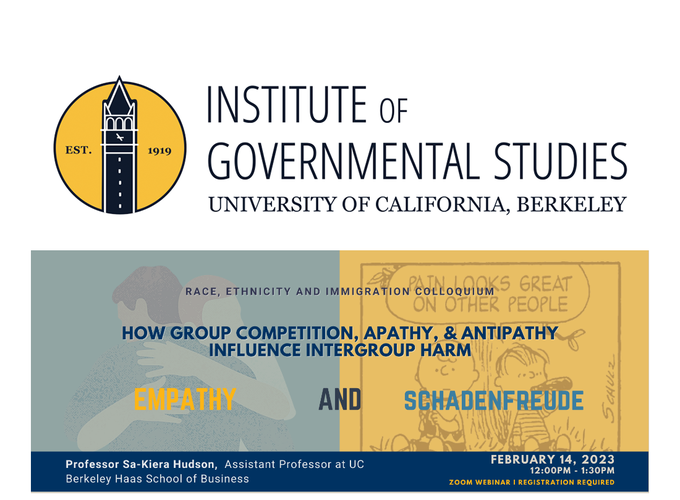How Group Competition, Apathy, & Antipathy Influence Intergroup Harm
 Image credit: Institute of Governmental Studies
Image credit: Institute of Governmental Studies
How Group Competition, Apathy, & Antipathy Influence Intergroup Harm
Abstract
Empathy is often hailed as the emotion to target in intergroup conflicts, as it predicts consequential prosocial behaviors that can help reduce inequality. And indeed, in many social conflicts, people struggle to feel empathy for those not part of their social groups. In this talk I will argue that while empathy is relevant for prosocial and helpful behaviors, it cannot adequately explain why people harm members of other groups. In my work I have developed a model that offers a more nuanced perspective, proposing that we need to incorporate a second, understudied emotion, namely schadenfreude, to understand people’s more nasty, harmful behaviors. Schadenfreude is the good feeling people have in reaction to another person’s pain and is especially likely to manifest when group dynamics are competitive. I suggest that group competition, as embedded within social contexts and within people’s ideologies, is an important motivator for feeling empathy and schadenfreude (or not) towards outgroups and low-status groups. Further, these emotions can help explain individuals’ policy support, such that empathy is the emotion primarily involved in helping other groups while schadenfreude is the emotion primarily involved in harming other groups. I discuss the implications of these findings to the maintenance of unequal social hierarchies.